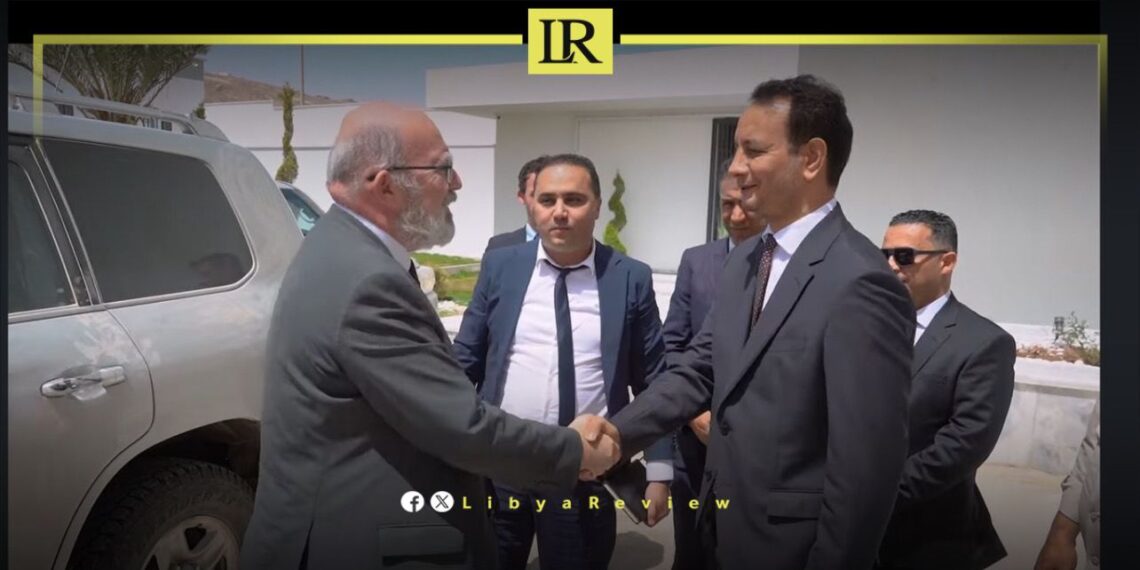On Thursday, Eng. Belqasim Haftar, General Director of the Libyan Development and Reconstruction Fund, convened with UK Ambassador Martin Longden along with a high-level delegation in Derna to discuss advancing collaborative reconstruction projects within Libya.
This meeting highlights the increasing international support Libya is garnering as it rebuilds from decades of conflict.
The visit included a comprehensive tour of several key development sites in Derna, where the UK delegation observed ongoing projects and explored opportunities for deeper involvement in Libya’s national reconstruction efforts. The discussions focused on leveraging British expertise in engineering consultancy, urban planning, and infrastructure development, which are crucial for revitalizing Libya’s war-damaged cities.
Eng. Haftar emphasized the strategic importance of the collaborations, pointing out how essential they are for broadening Libya’s reconstruction initiatives to more cities and regions. He expressed gratitude for the UK’s support in areas such as road paving and public utilities construction, essential components of Libya’s infrastructure rehabilitation.
The British delegation praised the Libyan Development and Reconstruction Fund’s effective management and its role in spearheading the redevelopment efforts, particularly in enhancing the urban landscape of Derna. They reaffirmed the UK’s commitment to supporting Libya’s journey towards recovery and stability.
Libya’s path to recovery follows a tumultuous period marked by the 2011 uprising against Muammar Gaddafi and subsequent years of civil war that fractured the nation and its infrastructure.
In the aftermath, Libya has faced significant challenges, including political instability, economic decline, and social upheaval. Recognizing the critical need for infrastructure restoration and economic revitalization, the Libyan government has actively sought international partnerships to support its ambitious redevelopment plans.
The UK’s collaboration is part of a broader international effort to assist Libya in stabilizing and rebuilding its economy and public services, aiming to restore normalcy and drive sustainable growth. Such partnerships are vital for Libya as it navigates the complexities of post-conflict recovery, aiming to rebuild a nation that is prosperous, stable, and offers a high quality of life for all its citizens.


